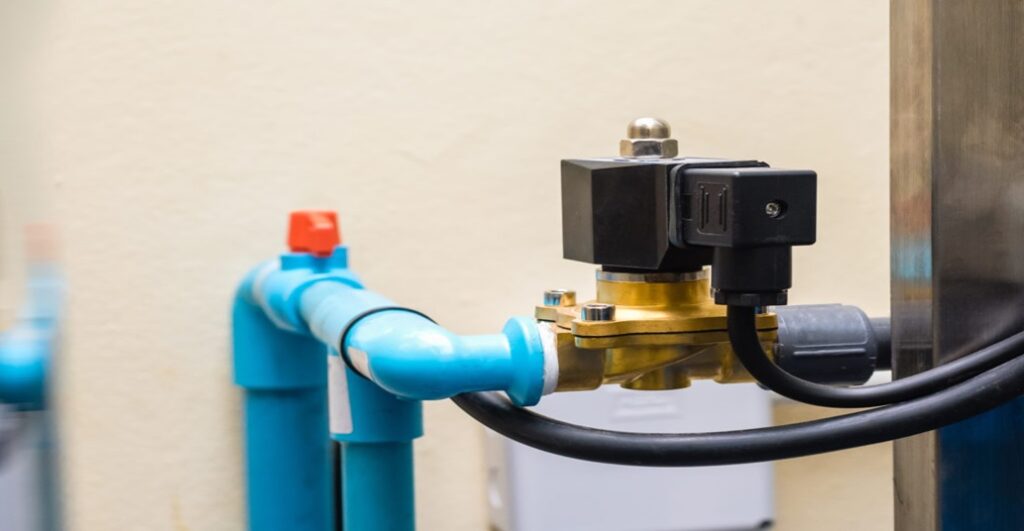Solenoid valves are crucial components in various industrial processes, enabling automated control of liquids and gases through electromechanical principles. As integral parts of industrial machinery and systems, solenoid valves play a pivotal role in ensuring efficient operation, reliability, and safety across diverse applications. This article explores the significance of solenoid valve manufacturer in meeting industrial needs and driving technological advancements.
Understanding Solenoid Valves
Solenoid valves are electromechanical devices that use an electric current to control the flow of fluids. They consist of a coil, plunger, and valve body, where the coil generates a magnetic field when energized, causing the plunger to move and regulate the flow of fluid through the valve. This simple yet effective mechanism allows for rapid response times and precise control over fluid flow, making solenoid valves ideal for applications requiring quick on-off control or modulation.
Applications in Industrial Settings
Solenoid valves find extensive use across a wide range of industries due to their versatility and reliability. In manufacturing processes, they are employed in automated machinery to regulate the flow of liquids or gases such as water, air, oil, chemicals, and steam. Examples include:
- Automotive Industry: Used in pneumatic systems for engine control, transmission systems, and braking mechanisms.
- Medical and Pharmaceutical: Vital in equipment for controlling the flow of gases and fluids in medical devices, analytical instruments, and drug delivery systems.
- Food and Beverage Production: Ensuring precise handling of liquids and gases in bottling lines, dispensing systems, and food processing equipment.
- HVAC Systems: Controlling the flow of refrigerants and fluids in heating, ventilation, and air conditioning systems for temperature regulation.
- Water Treatment and Wastewater Management: Managing the flow of water and chemicals in purification systems, irrigation, and sewage treatment plants.
Role of Solenoid Valve Manufacturers
Solenoid valve manufacturers play a crucial role in the industrial landscape by designing, producing, and distributing valves that meet specific application requirements. Their responsibilities include:
- Engineering Expertise: Manufacturers employ skilled engineers who design solenoid valves to withstand harsh environmental conditions, varying pressures, and temperature ranges encountered in different industries.
- Customization: Understanding that each industrial application has unique requirements, manufacturers offer customization options such as different materials, valve sizes, voltages, and performance specifications to ensure compatibility and optimal performance.
- Quality Assurance: Ensuring the reliability and durability of solenoid valves is paramount. Manufacturers conduct rigorous testing procedures to validate performance metrics, leak tightness, and operational lifespan under simulated operational conditions.
- Compliance and Standards: Adherence to industry standards and regulatory requirements is integral. Solenoid valve manufacturers certify their products to meet international standards such as ISO, CE, UL, and RoHS, ensuring compatibility with global industrial norms and safety regulations.
- Innovation and Technology: Continuous research and development efforts drive innovation in solenoid valve design. Manufacturers invest in new materials, advanced manufacturing techniques, and electronic controls to enhance valve efficiency, reduce energy consumption, and improve overall performance.
- Technical Support: Providing comprehensive technical support is essential for assisting customers in selecting the right solenoid valve for their application, troubleshooting issues, and ensuring seamless integration into existing systems.
Market Trends and Future Outlook
The demand for solenoid valves continues to grow alongside advancements in automation, digitalization, and smart manufacturing. Key trends shaping the industry include:
- IoT Integration: Solenoid valves are increasingly equipped with sensors and actuators for remote monitoring, predictive maintenance, and real-time data analytics, enhancing operational efficiency and minimizing downtime.
- Energy Efficiency: Manufacturers are focusing on developing energy-efficient solenoid valves that reduce power consumption without compromising performance, aligning with global sustainability goals.
- Miniaturization: Shrinking valve sizes and integrating multifunctional capabilities cater to compact and space-constrained applications in robotics, portable devices, and IoT-enabled systems.
- Enhanced Durability: Improvements in valve materials and coatings enhance resistance to corrosion, wear, and chemical exposure, extending operational lifespans and reducing lifecycle costs.
Conclusion
In conclusion, solenoid valve manufacturers are pivotal players in driving innovation, reliability, and efficiency across diverse industrial sectors. By leveraging advanced engineering, customization capabilities, and adherence to stringent quality standards, these manufacturers ensure that solenoid valves continue to meet the evolving needs of modern industrial applications. As industries embrace automation and smart technologies, the role of solenoid valve manufacturers remains integral in facilitating seamless fluid control solutions that enhance productivity and operational excellence.

